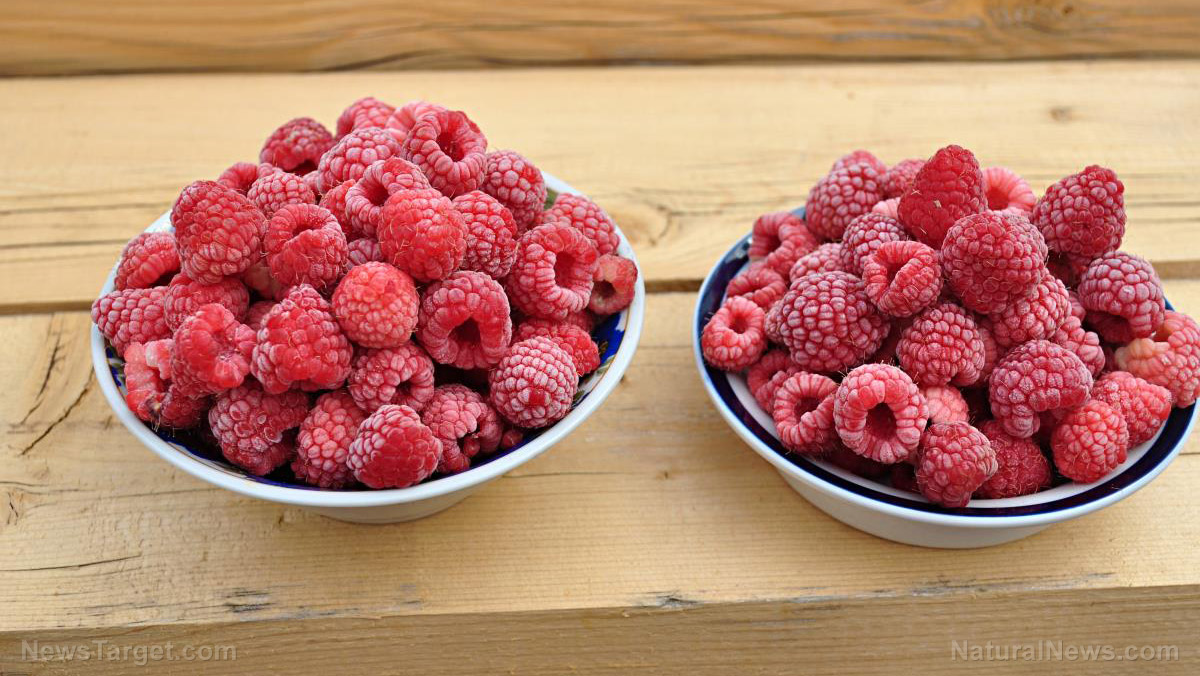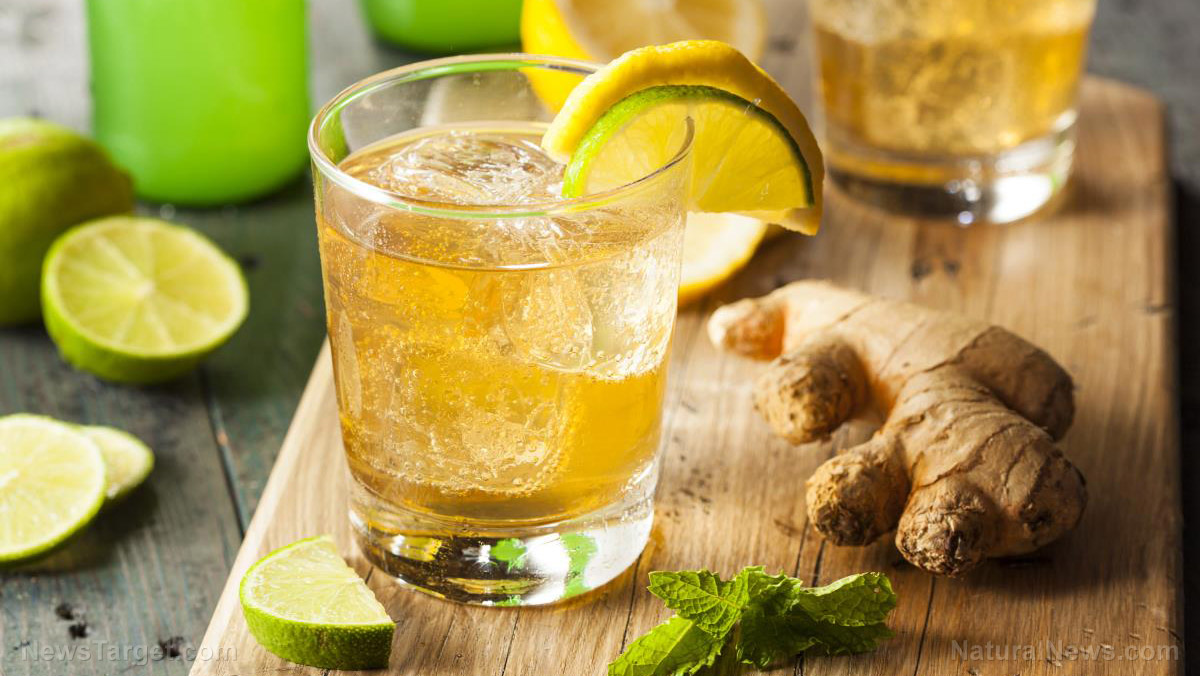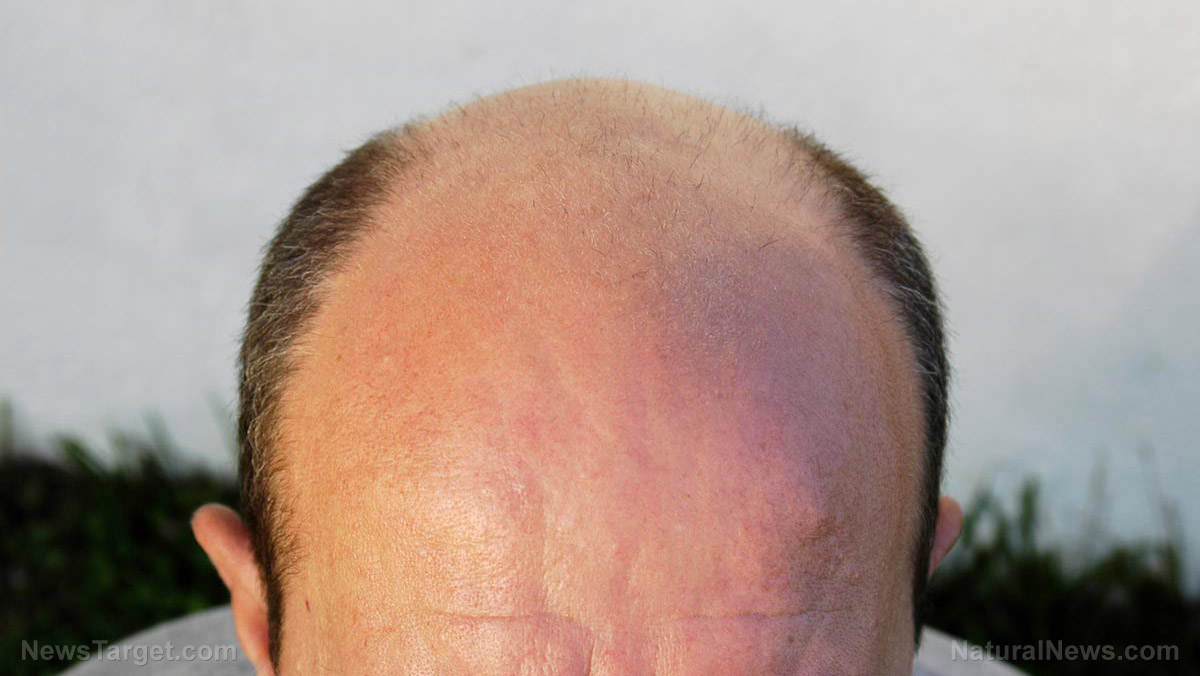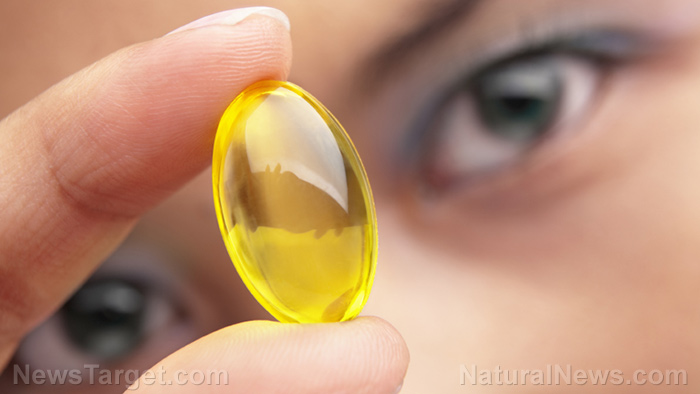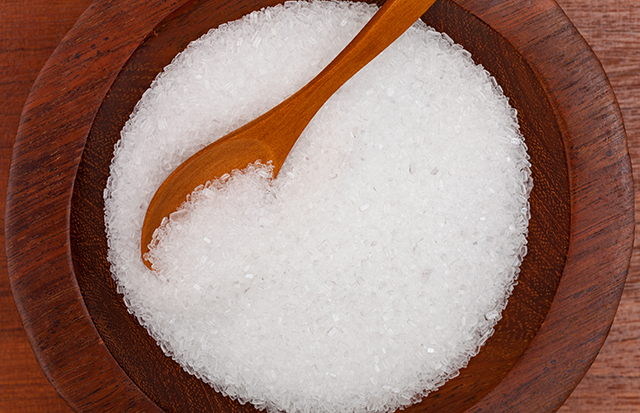Natural healing: The medicinal benefits of cayenne pepper
10/05/2022 / By Zoey Sky

If you’re looking for a medicinal food that helps stimulate circulation throughout the entire body and boosts your heart health, consider cayenne pepper. This spicy superfood gives any dish a nice kick, and it also offers many health benefits. (h/t to DeepRootsAtHome.com)
Cayenne pepper: A superfood that helps boost heart health
Cayenne pepper’s active main ingredient capsaicin is linked to many health benefits, such as:
- Improving blood flow
- Lowering cholesterol
- Reducing oxidative stress
- Regulating blood pressure
- Slowing or stopping hemorrhaging
Many studies have covered the medicinal benefits of cayenne pepper and capsaicin so consider incorporating this amazing superfood into your dishes and regular diet.
Cayenne peppers and other types of hot peppers are full of many nutrients.
One 45-gram hot red chili pepper contains 18 calories, 0.2 grams of fat, 0.7 grams of fiber, 0.8 grams of protein and 3.9 grams of carbs.
The same serving also contains:
- Vitamin C – 72 percent of the Daily Value (DV)
- Provitamin A – 48 percent of the DV
- Vitamin B6 – 13 percent of the DV
- Vitamin K – 5 percent of the DV
Chili peppers like cayenne peppers are full of provitamin A carotenoids and vitamin C.
Vitamin A exists in two forms: provitamin A and preformed vitamin A. Provitamin A carotenoids are found in plant foods and preformed vitamin A is found in animal foods.
Provitamin A carotenoids found in cayenne include alpha carotene and beta carotene, which your body can turn into the active form of vitamin A.
Vitamin A is needed for:
- Bone health
- The proper functioning of the immune system
- Growth and development
- Reproduction
- Vision
Hot peppers like cayenne peppers are also full of vitamin C. Just one 45-gram chili pepper provides 72 percent of this nutrient, which is crucial for your immune health.
Vitamin C also plays critical roles in collagen production, iron absorption and neurotransmitter synthesis.
Cayenne peppers also provide nutrients like vitamins B6 and K, magnesium and potassium.
How to use cayenne pepper to boost heart health
When used properly, cayenne pepper may even help stop a heart attack in its tracks.
To make this remedy, you need cayenne pepper that is at least 90,000 Scoville heat units (SHU) to be able to stop a heart attack. If the cayenne is at least 90,000 SHU and the patient is still conscious, mix one teaspoon of cayenne powder in a glass of warm water to make a “cayenne tea.” Let the patient drink the tea.
If the person is unconscious, use a cayenne tincture or extract that is at least 90,000 SHU. Put a couple of full droppers underneath their tongue at full strength.
Warm cayenne tea works faster than tablets, capsules or cold tea because warm tea opens up the cell structure so it accepts the cayenne much faster. The cayenne then goes directly to the heart, through the arterial system, and feeds it “powerful food.”
Cayenne pepper may also prevent strokes and it relieves angina pain quickly by restoring blood flow to the heart. (Related: Prepper medicine: Combat antibiotic resistance with these medicinal herbs.)
Cayenne for prevention and maintenance
Cayenne pepper is very spicy so you need to build up your spice tolerance over time. Start with only one to two drops of tincture, then slowly increase the dose as you build your tolerance.
Alternatively, you can mix the powder into food and drink cayenne tea.
How to make cayenne tincture
Follow the steps below to make cayenne tincture at home:
Ingredients:
- Cayenne peppers, fresh, dried, or powdered
- Vodka
- Jar with lid
Steps:
- Place the cayenne peppers in a jar. If using fresh peppers, fill the jar. If you’re using dried peppers, fill the jar halfway. Add two tablespoons if using cayenne pepper powder.
- Pour vodka over the peppers to the top of the jar but leave two inches of headspace. Cover the jar with the lid.
- Store the jar in a dark, cool cabinet for four to six weeks. Shake the jar daily or at least once a week.
- After four to six weeks, strain the peppers from the liquid.
- Bottle the liquid and store it in the cabinet.
Use potent cayenne peppers or cayenne powder that is at least 90,000 SHU for the tincture so you can use fewer drops. This is important because it may not be possible to get a person in the middle of a stroke or a heart attack to drink a full cup of cayenne tea.
Tips for dosing with cayenne pepper
If you’re not sure where to start with dosing, make a tincture between 35,000 and 100,000 SHU and add several drops to a glass of water two to three times a day. If you feel burning or indigestion when drinking cayenne tea, take it with food as a buffer.
Once you’re used to drinking cayenne tea, you can also try growing peppers in your home garden so you can make a tincture using fresh cayenne peppers.
The spiciness of peppers is measured in Scoville Heat Units (SHU). If you don’t have cayenne peppers, you can use any hot pepper with a Scoville heat unit between 40,000 and 100,000 SHU to reap similar health benefits.
For reference, Habanero peppers in most grocery stores are from 200,000 to 350,000 SHU.
Note that most culinary cayenne peppers sold in stores are only about 35,000 SHU. While this is not strong enough to get the best results for injury applications, pain relief, or heart and stroke conditions, it’s ideal for daily use to help prevent health issues and promote vitality.
Health experts think that the use of cayenne pepper in Asian, Italian and Mexican cuisines is what caused the countries to have a lower incidence of heart disease.
Considerations before taking cayenne pepper
If you are about to undergo surgery, stop taking cayenne at least seven days before surgery due to its blood thinning properties.
If you are allergic to latex, avocados, bananas, chestnuts or kiwi, you may also be allergic to cayenne.
If you take blood thinner medication, avoid cayenne and other peppers with high levels of capsicum as they increase the risk of blood vessels rupturing. This can cause uncontrolled hemorrhaging.
If you have suffered a heart attack or stroke, avoid consuming large amounts of cayenne because it increases your risk of experiencing an injury called reperfusion. When blood supply is cut off from tissues long enough, tissue death can occur because of the lack of oxygen.
When the blood supply is restored, this leads to inflammation and tissue destruction due to oxidative damage from the increase of blood and oxygen back to the tissues. While it has not been proven, in theory, the damage from reperfusion injuries can be increased by increasing blood flow to the dead tissues.
Visit Superfoods.news for more articles about incredible superfoods and their health benefits.
Watch the video below to know more about the health benefits of cayenne peppers.
This video is from the Groovy Bee channel on Brighteon.com.
More related stories:
Prepper secret: Cayenne pepper offers a natural way to improve blood circulation in your feet.
Prepper medicine: Cayenne pepper boosts metabolism, kills bacteria and even stops bleeding.
3 Reasons to start your morning with a glass of cayenne pepper water.
Sources include:
Submit a correction >>
Tagged Under:
alternative medicine, capsaicin, cayenne pepper, food cures, food is medicine, food science, health science, heart disease, heart health, natural cures, natural health, natural medicine, phytonutrients, prevention
This article may contain statements that reflect the opinion of the author
RECENT NEWS & ARTICLES
COPYRIGHT © 2017 NATURAL CURES NEWS







